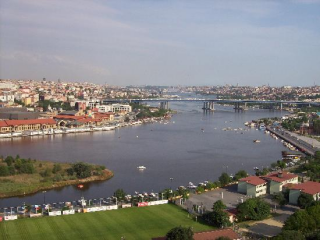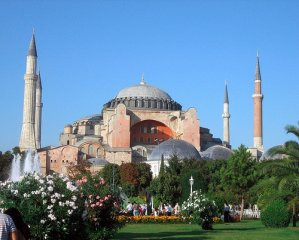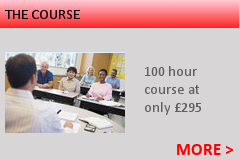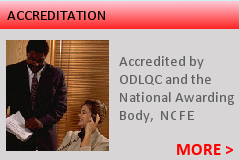

TURKEY



Basic info
Turkey is a Eurasian country that stretches across Western Asia and South-Eastern Europe. It is bordered by Bulgaria, Greece, Georgia, Armenia, Azerbaijan, Iran, Iraq and Syria. The main religion in Turkey is Islam, with a few who are Christians or Jewish and the country�s main language is Turkish. Asian Turkey makes up 97% of the country and is separated from the European 3% of Turkey by the Bosphorus, a large river that runs through Turkey. It is an earthquake-prone country and has occasional volcanic interruptions too.
The coastal areas of Turkey have warm to hot moderately dry summers and cold wet winters. Snow can fall here but only usually lies for a few days. Inland Turkey is slightly cooler and in the mountains can get very cold indeed with temperatures going as low as �40 degrees centigrade in parts with snow sometimes staying on the ground for as much as a third of the year!
Why should I go to Turkey?
There are many reasons that people visit Turkey, from the beautiful mountains and beaches found all over the country to the bustling markets, or bazaars, that are an experience that is out of this world, especially for the shopaholics out there! The one thing that is truly unique about Turkey is the mixture of East and West that is there because of the highly unusual position of Turkey being in both Asia and Europe. If you visit Istanbul (which is a must if you�re in Turkey!) then you will actually get to experience having the city belong to 2 different continents! There is a very high demand for English teachers in Turkey so as long as you have what they�re looking for you�re pretty much guaranteed a job.
What is there to see and do?
The city of Istanbul is the place to go for shopping, eating, drinking, sightseeing and nearly everything else you�d want to do! It has everything you�d want from a Cosmopolitan city; the latest fashions and designs, the most hip and happening bars, restaurants and clubs, historic old buildings and exciting modern art galleries. There are so many things to do in Istanbul that it�s hard to know where to start! But the first thing, for shopaholics at least, is the famous Grand Bazaar. As well as a fun day out and an experience you will never forget, you can find beautiful handmade Turkish lamps, individually made clothing, traditional Turkish jewellery, intricately woven carpets, an array of aromatic spices, colourful scarves and pashminas galore and much much more! Be prepared to haggle the prices down and be offered Turkish tea nearly everywhere you go as the shopkeepers do everything they can to make sure they get a sale.
Istanbul is also well known for its mosques, the 2 most famous being The Blue Mosque and Aya Sofya. Both completely unique, they are simply stunning outside and in, with extraordinary architecture highly unusual and breathtaking tiling and stained glass windows once you�re inside. As a sign of respect you should make sure to dress fairly conservatively to visit the mosques and to cover your shoulders once you�re going inside. You will have to take off your shoes too.
A visit to Istanbul would not be complete without a cruise down the Bosphorus to see all the sights of the city. Do it during the day to see all the sights in glorious detail or at night for a romantic view of all the twinkling lights in the moonlight. A unique experience, sailing down the Bosphorus will mean that you can see the Europian and Asian parts of Istanbul, both at once, not something you can say about sailing down most rivers!
Adventure lovers in Turkey should head to Nemrut Dagi National Park. It is one of the main attractions of Eastern Turkey, built thousands of years ago, before Christ, although no one�s exactly sure when. A stunning World Heritage Site on the top of Mount Nemrut which reaches a height of 2150 metres. Based near the village of Karadut, the site is filled with a number of large statues who mysteriously all had their heads removed and are scattered through the site. A slightly eerie sight, it is a popular place to visit and there are regular tours there in the summer months.
One more place worth a mention is Ephesus (Efes), the place to go if you�re interested in history and want to get a feel for Roman times. It was a major Roman city way back in the first century BC, the second largest city in the world in fact, and so is full of Roman ruins, complete with a 44,000 seat theatre and various other temples and tombs. Ephesus contains the largest collection of ruins in the Eastern Mediterranean. It�s located near the town of Selcuk, another popular tourist destination, also famous for it�s many historical buildings.
How safe is it?
Turkey is generally quite safe. However, as with many popular travel destinations petty crime such as pick pocketing is quite common, especially in the cities. You are advised to watch your wallets, purses and other personal belongings, especially in crowded areas.
If you can avoid it then it is probably best to steer away from driving in Turkey or even hiring a moped or bike. They have different rules on the road to us and don�t have much in the way of different lanes like we do. Even a taxi ride can be a slightly hairy experience in the busier areas! It is said that Turkey has more road accidents per kilometre than anywhere else in the world, and once you�ve been there you can easily believe it!
Overall Turkey is a safe place for women to visit but you have to remember that it is a very different culture to ours so you should expect it to be a little different from home. Turkish men are very �touchy feely� by nature and many will comment on your appearance and flirt with you, often to get you to buy something off them or to dine in their restaurant. There are of course a few who will take advantage of the fact that women are foreigners and go too far but these men are in the minority. Be careful how you dress in poorer and more conservative areas as the more scantily clad you are, the more attention (and sometimes hassle) you will attract.
What qualifications or experience do I need to have? How do I know if I�m eligible?
Everywhere in Turkey will want you to have a university degree, in any subject, and most of them will also require some kind of TEFL certificate. Without this qualification you will find it hard to find work and the better (and better paid!) jobs go to those with a teaching qualification. Previous teaching experience is not usually essential, although it is often desired for the better paid jobs.
A teaching qualification will show that you�re dedicated and committed to teaching and will also help you feel a lot more confident once you�re in the classroom. You won�t last long if students start firing grammar questions at you and you don�t know what they�re talking about!
Please remember that to be officially qualified to teach, your course must be internationally recognised which means being at least 100 hours long and accredited by an independent accrediting body. If not, you may find it very difficult to find a school that will accept you. As convenient as they may seem at the time, weekend courses will not qualify you to teach.
You will need a work visa to obtain work in Turkey. This needs to be applied for in your home country and can take 4-6 weeks to arrive. It is very common to find work on a tourist visa (technically it is illegal but a lot of people do it) but this means you will have to leave the country every 3 months to apply for a new visa. It is better to be safe than sorry and apply for one from home.
Are there any age restrictions?
There is no upper age limit for teaching English in Turkey. It is still always a good idea to check with your employer but it is doubtful that you will experience any difficulties. If you do find that you are having problems when you apply then just apply somewhere else, you�ll be successful eventually!
What will I earn and what currency do they use?
In Turkey they use New Turkish Lira (YTL). As with most places your expected salary depends on where exactly you work but it tends to be between 1000 � 2000 YTL a month which is equivalent to approximately �400 � 900 ( or $700 � 1500) It is probably best to wait until you are in Turkey before changing your money into Lira as you will get a better exchange rate. Some teachers supplement their income by giving private lessons, which can help your income by quite a bit! However, some employers forbid this so it is worth finding this out first.
Tax is usually around 25% but salaries in Turkey are usually quoted after tax. It is best to check though.
Most employers, although not all, provide accommodation for their employees. You are advised to check the accommodation before you agree to it though as standards are not always as high as expected. Your employer is likely to pay for your return flights if you are from the UK, but less likely to from the US or Australasia.
The cost of living in Turkey is generally low, especially if you eat like the locals and shop at markets. Western food is usually expensive though, in shops and restaurants. One thing to be aware of is that inflation is rising rapidly and living costs could change noticeably from the beginning to the end of even a one year contract. Consider this when you negotiate your salary.
What will the schools be like and what hours will I work?
The schools you could end up working in include private primary and secondary schools, state primary and secondary schools, private language schools and private universities. In Istanbul especially there are plenty of schools that cater solely for adult students and these are generally much easier to find work in than primary or secondary schools, although this does mean that it is likely you will have to work some evenings and weekends. There are plenty of English schools in Turkey, especially in the cities, but Istanbul is seen as being the place to go and has more language schools than anywhere else.
Although it is not as bad as other countries for this, Turkey does have some employers who will try to take you for a ride. For that reason we always recommend you research the employer fully and ask around for opinions on the school in question, try to get recommendations from previous staff if you can. Other general questions such as whether or not the school has a syllabus or whether or not they provide accommodation are always worth asking as they can often give a clue to the quality of the school.
You will usually be asked to teach around 25 hours a week, although this varies from school to school. In smaller schools you may find that you don�t have many hours and your contract isn�t actually worth much. Make sure to check before you accept the job that you will be earning enough to live on and make sure you sign a contract.
Anything else I should know?
As odd as it may sound, one thing to avoid is going into the street with wet hair, especially in the middle of cities or towns; it is seen as being disrespectful to Muslims. For the same reason, if you are visiting a mosque in Turkey you are advised to avoid wearing revealing clothing, it is especially important to cover up your shoulders and you may have to leave your shoes outside.












